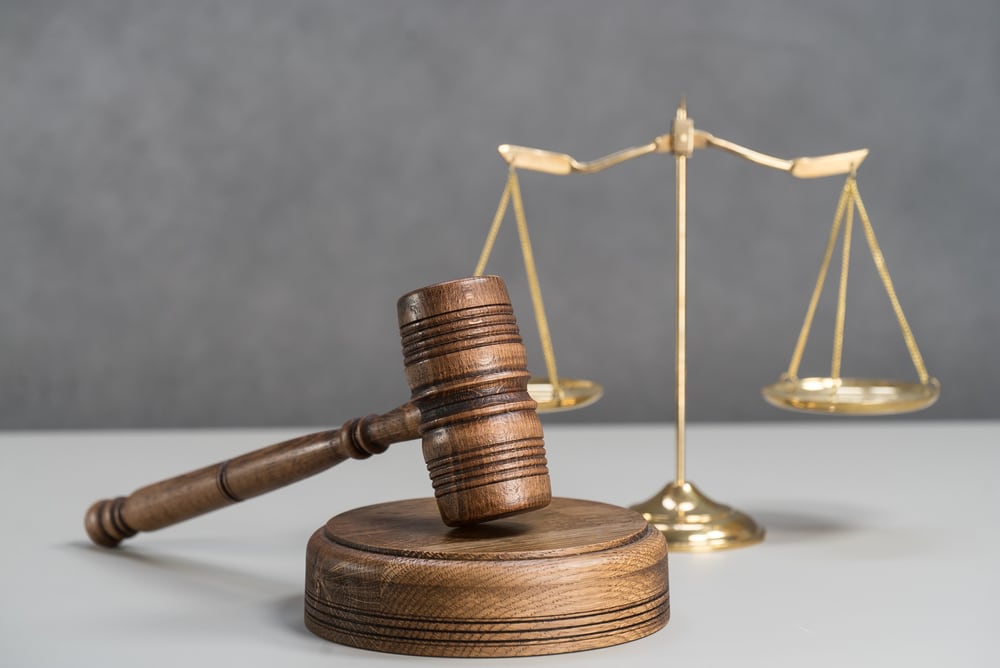What happens if charges are dropped before court?

Suppose you’ve been charged with a crime in Arizona but before the case goes to court, the charges are dropped. You sigh in relief because you aren’t facing criminal penalties or being convicted. But what happens if charges are dropped before court? What are the potential outcomes and things to watch for?
When you face serious criminal charges, you need an experienced criminal defense lawyer from the Law Office of Hernandez & Hamilton, PC, on your side. Our attorneys possess more than 90 years of combined experience and can assist you in a case where charges are dropped before court. Hernandez & Hamilton also offer representation in court, plea bargaining and negotiation services, and assistance with record sealing and expungement. Speak to one of our experienced criminal defense attorneys today at (520) 882–8823 for a complimentary consultation.
What Does It Mean If Charges Are Dropped Before Court?
You may have heard the term ‘dropping charges’ on TV or in the movies, but what does it mean?
Dropping charges refers to the prosecutor withdrawing criminal charges against someone. Dropping charges is different from when the court dismisses charges, which frequently occurs in an Arizona preliminary hearing.
After your preliminary hearing, if insufficient evidence shows probable cause for the criminal case to proceed, the judge could dismiss some or all of the charges. For various reasons, the prosecutor may drop charges when they decide they don’t want to move forward with the case. They may decide, for example, that they cannot prove beyond a reasonable doubt that you committed the crime.
There are also voluntary and involuntary case dismissals. A voluntary dismissal occurs when the prosecutor decides to drop the charges. Perhaps the victim decides they don’t want to pursue charges, and the prosecutor agrees to drop the matter.
The other is an involuntary dismissal, in which the judge dismisses the case despite the prosecutor’s objection. The defendant could file a motion to dismiss criminal charges if they think there is not enough evidence or another valid reason.
A case dismissed with prejudice means that the case is closed and cannot be reopened. A case dismissed without prejudice means it could be reopened.
Why Would The Prosecutor Drop Charges In Criminal Court?
Prosecutors are paid to convict a criminal defendant accused by an alleged victim. But in some instances, convicting the person could be difficult or impossible, so the prosecutor might decide to drop charges before court. Here are some common reasons:
- Your constitutional rights were violated: If Arizona law enforcement obtained evidence in your case in a way that violated your rights, the evidence may be suppressed. If the prosecutor has insufficient evidence to prove the case, they may have to drop charges against you. For instance, the police may have illegally searched your vehicle and obtained evidence to use against you. There may not be enough evidence left to convict you.
- Credibility problems: If a witness is thought to be unreliable or not credible, the prosecutor may have to drop charges. If a witness claims you assaulted someone and it turns out they have lied about such claims before, their testimony may have little value. The prosecutor may decide not to move forward with assault charges.
- Invalid search warrant: A warrant where case evidence is obtained must meet specific requirements. If the warrant isn’t valid, charges may have to be dropped. Your criminal defense attorney will review the search warrant and determine if it was obtained and written legally. For example, the search warrant may be invalid if there was no probable cause to search your residence for drugs.
- Statute of limitations: Certain Arizona criminal cases must be prosecuted within a specific time. The case may be dropped if the state doesn’t file charges in time. Your attorney will know the relevant statute of limitations and whether it has expired.
- Procedural mistakes: Sometimes, a criminal defendant may have committed the crime. However, if errors were made or facts were not included in the criminal complaint or charging document, the case may not stand. For instance, procedural errors with booking, the arrest, or the bail hearing could occur.
- Plea bargain: In some criminal cases, you might qualify for a pretrial diversion program instead of going to court. These programs stress rehabilitation instead of jail time. Pre-trial diversion is usually reserved for first-time offenders and those charged with non-violent crimes. In return for dropping charges, you may be required to take anger management classes, attend mental health counseling, or engage in an alcohol treatment program.
Only the Prosecutor Can Drop Charges Before Court
Many people assume that if the alleged crime victim drops charges, the case is over. This isn’t true. The victim may say they no longer want to press charges against the accused, but it is up to the prosecutor. Sometimes, a witness or victim doesn’t appear in court or won’t cooperate with the prosecutor, which could lead to the prosecutor being forced to drop charges.
A common situation is when a spouse accuses the other of domestic violence in Arizona. Perhaps the plaintiff has second thoughts in the hours or days after the incident. They may want to drop the domestic violence charges against their spouse. However, it is at the prosecutor’s discretion whether the case will move forward.
Expungement And Record Sealing If Charges Are Dropped
If your attorney succeeds in getting your charges dropped before court, can you get your record expunged or sealed? Possibly. It once wasn’t possible to expunge a criminal record in Arizona until the passage of two recent laws. Even if a case against you is dropped, you could still have criminal charges or an arrest record. These things could follow you through life and make it harder to find work, rent a home, get credit, go to college, and more. Fortunately, the two new Arizona laws may make your life easier.
First is ARS 36-2862, which states as of July 2021, that anyone with a criminal record for various marijuana offenses can petition the relevant court to have their record expunged. This includes an arrest, conviction, or other black marks on your record related to specific marijuana crimes. This law offers ‘true expungement,’ meaning the record is obliterated and is only visible to courts and law enforcement in certain situations. Crimes eligible for expungement under this law include:

- The possession, consumption, or transportation of 2.5 oz. or less of marijuana.
- The possession, consumption, cultivation, or processing of a maximum of six marijuana plants at your residence for personal consumption.
- The possession, usage, or transporting of drug paraphernalia related to cultivating, consuming, or manufacturing marijuana.
The second is ARS 13-911. The law states that you can file a petition to seal your case records in certain situations. The law took effect on Jan. 1, 2023, and applies to the following scenarios:
- You were convicted of a crime and completed all terms and conditions of the sentence.
- You were charged with a crime, but the charge was dropped, diminished, or resulted in a not-guilty verdict.
- You were arrested for a crime, but no charges were filed.
If you want to have a record sealed or expunged, there is a waiting period if you were convicted, which is based on the severity of the crime:
- Ten years for a Class 2 or Class 3 felony
- Five years for a Class 4, 5, or 6 felony
- Three years for a Class 1 misdemeanor
- Two years for other misdemeanors
A skilled criminal defense lawyer is vital to getting a record sealed or expunged. These laws are complex and challenging for non-attorneys to navigate. Also, state legislators often amend or pass new laws, so laws in this critical area evolve. If you want options to seal or expunge your record, you should retain an experienced attorney.
What About Reducing Criminal Charges?
A seasoned criminal defense lawyer might not always get your charges dropped, but they may be able to reduce them to a less severe punishment. This is known as a plea bargain.
The truth is that most criminal cases don’t proceed to trial. Skilled attorneys would usually enter a plea deal instead of risk losing at trial. Court cases, especially with juries, are unpredictable. A criminal case can frequently end in a way the attorneys don’t expect.
Thus, prosecutors are often open to reasonable plea bargains before trial. The plea bargain may entail entering a guilty plea for a reduced charge. If the prosecutor’s case is weak, you might have a better plea deal offered. The prosecutor may offer a less favorable deal if they have a strong case.
Contact An Arizona Criminal Defense Lawyer Today
Hernandez & Hamilton are among the premier criminal defense attorneys in the state. We can provide high-quality legal representation for serious criminal charges and can help you with your case. Our firm was named one of the Best Law Firms in 2024 by Best Lawyers and has been named to the elite Super Lawyers and AV Preeminent Martindale-Hubbell lists. Contact Hernandez & Hamilton today at (520) 882–8823 for assistance with your criminal charge. We offer a free consultation, so call today.





